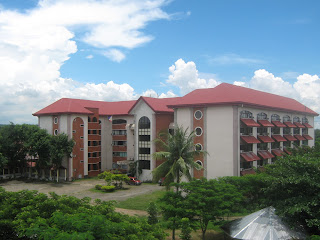After the ruins of World War II, Dagupan City rose to become one of the major economic, political and socio - cultural centers of Northern Luzon. At the core of this development were the academic institutions that serve to produce the prime movers of society.
In that fateful year of 1948, Atty. Luis F. Samson, Sr. gathered his friends: Liberato LI. Reyna, Servillano B. Romasanta, Basilio F. Fernandez, Moises A.Maramba, Isidro Z. Tandoc, Jose D. Fenoy, Ruperto Z. Tandoc, Catalino C. Coquia, Federico I. Cervas, Victorino C. Daroya, Vicente de Leon, Constancio Ancheta, Pedro B. Pinero and Brigido Martinez. Together, they designed the blueprint of the then Luzon College of Commerce and Business Administration (LCCBA. Atty. Luis F. Samson served as the school president since the foundation of the college.
In 1952, LCCBA was renamed Luzon Colleges (LC). From the initial enrolment of 243, LC held as many as more than 16,000 students at the onset to the middle part of the 80's.
The Commission on Higher Education granted university status to the Luzon Colleges in 2002.
The university has five (5) PACUCOA Level III- Reaccredited programs, namely: Criminology in 2006,Teacher Education programs (Elementary Education and Secondary Education), Commerce and Liberal Arts in 2007.
On July 14, 2008, the UL College of Criminology was identified by CHED as the first and the only Center of Excellence in Criminology Education in the country. In March 2008, the UL College of Education was certified as a Center of Training by CHED, Department of Education and the Professional Regulation Commission. The Liberal Arts, Commerce and Education (LACOMED) programs of the University are now in the thick of preparation in their respective bids for Centers of Excellence Status.
The School Year 2008-2009 ushered in more changes for the university. This school year saw the implementation of web - enhanced learning for English, Mathematics, Science and Nursing through the introduction of E- Learning in campus. UL was the first in the region to adopt this program and among the very few to integrate IT in their instructional delivery systems all over the country. Another academic milestone was attained with the opening of the UL Pozorrubio Campus which started its academic calendar in June 2008 with an initial enrollment of 46 students.



























